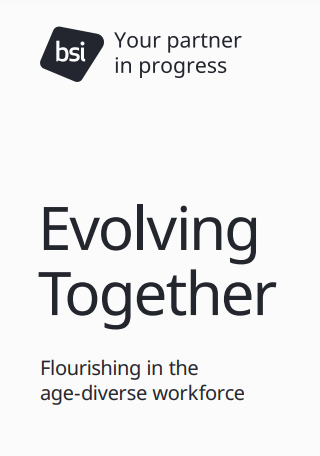The Age-Diverse Workforce: How the technology industry can evolve
The world of work is changing
That includes when we work, how we work, where we work, the tools we use - and who is working. Demographic shifts in many economies mean that, as populations age, people will be working for longer, in all sectors. According to the World Health Organisation, the proportion of the world's population that is over 60 will nearly double from to 22% by 2050. In the UK over the past decade, employment rates of people aged between 50 and 70 have shown upward trends. An even greater number of generations will be in the workplace at any one time. The opportunities this will create and the impact it will have – much of which we can’t even conceive of yet – are likely to be transformative for individuals, organizations and society.
This poses questions for technology sector employers. For example, how do firms adapt to attract and retain top talent as the age of workers changes? What can they put in place now to ensure individuals can thrive and remain productive? How can they develop and sustain necessary skills and engender innovation given the pace of change of technology?
What does the technology sector look like now?
On the surface, at least, the global technology sector skews younger than other industries, with many prominent Silicon Valley (and Roundabout) start-ups established by youthful creators. This varies between countries, but the data does support that the workforce skews younger. US figures put the average age of an internet worker as 34.6 against a general figure of 42.3. In the UK just over a fifth of IT workers are understood to be over 50. In India, this is even more stark, with under 2.5% of IT workers estimated to be over 50.
But as these workers age, many of them will want career longevity. In any case, the demographic shifts and skills and recruitment shortfalls mean there may not be a new crop of young recruits coming up the ladder. With high-skilled talent in demand, the technology workforce could become increasingly age-diverse. That’s something to embrace.
How can the sector prepare for the age-diverse workforce?

BSI’s research, Evolving Together: Flourishing in the age-diverse workforce, consulted 932 business leaders across nine markets and
seven sectors to understand their priorities for success. We found that technology professionals place particularly high value on skills upkeep and retraining (54% compared to a global average of 45%), indicating a desire to maintain relevant knowledge in their fast-changing industry as they age. They also emphasized financial incentivization from government for businesses to invest in training.
Financial considerations and flexibility around when and where work is done also scored highly, reflecting the fact that many technology roles already facilitate greater freedom and often command top salaries. Meanwhile, health and well-being considerations generally were less prioritized, perhaps because these are primarily offers knowledge economy rather than manual roles.
The research shows a clear opportunity for technology firms to plan for the age-diverse workforce and consider where it might be appropriate to rethink and reframe work. Training, retraining and refreshing skills and offering professional development will be critical, as will making work worthwhile and ensuring people remain challenged throughout their careerspans. Finally, it will be vital to listen to employees and give all voices, no matter experience or career stage, a chance to contribute and shape the future of work.
The picture this presents is exciting; a chance for today’s technology leaders to shape a future industry that meets tomorrow’s needs, drawing on people’s talents no matter their age or stage.
Skills, Talent and Diversity updates
Sign-up to get the latest updates and opportunities from our Skills, Talent and Diversity programme.








